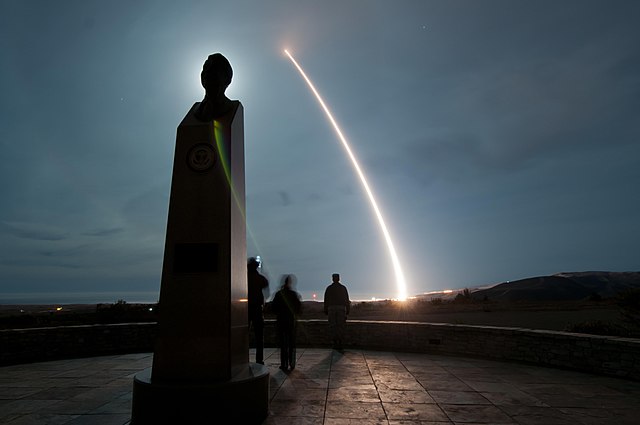Nuclear Tensions Rise as Russia Suspends New START

The U.S. Air Force tests a Minuteman III ICBM, 2013.
The New START treaty limited the number of ICBM launchers the U.S. could utilize.
Jonah Carlson - Last week, Russia suspended its participation in New START, the last major nuclear-arms treaty between Russia and the United States that limited the number of strategic nuclear warheads and launch systems the two countries could deploy. The suspension contributes to the continued deterioration of Europe’s security environment and poses a new schism in strategy between Russia and the West. Ann M. Simmons, Sabrina Siddiqui, and Austin Ramzy explore the ramifications of the action and President Vladimir Putin’s latest statements regarding the Ukraine war through an article in the Wall Street Journal.
The Russian policy change on New START is just one of several examples that illustrate the shifting geopolitical codes between Russia and the West. Geopolitical codes determine the way that states interact with one another by determining allies, enemies, means of defense, etc. One of the major questions concerning geopolitical codes is how exactly a country defends itself, which can include both strategy and means of defense. By suspending New START, Russian officials are signaling their reemergent interest in nuclear weapons development as a method of defense, reversing trends throughout the late 20th century to reduce nuclear testing and arsenal accumulation, such as START I in 1991 and START II in 1993. Such reemergent interests are indicative of an increasingly tense security situation globally, not only due to the full-scale war in Ukraine crossing the year mark but other tensions as well, such as warming U.S.-China competition in the Pacific. As the security situation continues to deteriorate, it is likely that further alterations to the current geopolitical code will occur.
The collapse of New START brings the importance of scale into full focus. Many states have postured themselves in a “neutral” position between Russia and the West, framing the conflict between the two as a regional issue. However, the possibly of renewed nuclear testing – or, in the worst-case scenario, a nuclear conflict – has the potential to shape global environmental and political questions, forcing more states to consider their position in the conflict between Russia and the West through a global lens rather than a regional one.
Photo source. U.S. Air Force/Airman 1st Class Yvonne Morales, Public domain, via Wikimedia Commons.

